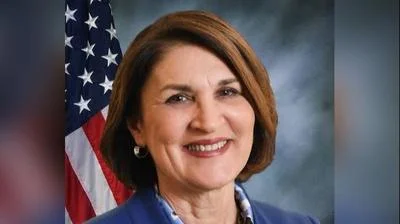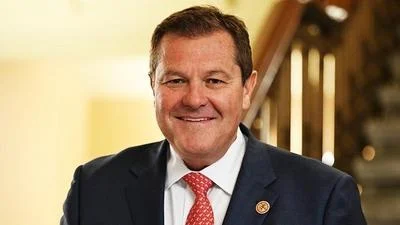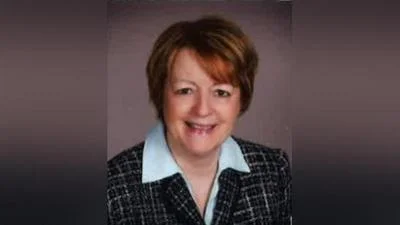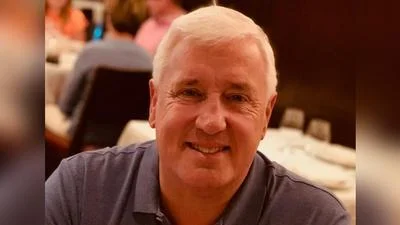Kyle Moore, Illinois State Representative for 99th District | https://www.facebook.com/MayorKyleMoore/
Kyle Moore, Illinois State Representative for 99th District | https://www.facebook.com/MayorKyleMoore/
According to the Illinois General Assembly site, the legislature summarized the bill's official text as follows: "Amends the Illinois Income Tax Act. Increases the amount transferred from the General Revenue Fund to the Local Government Distributive Fund. Effective immediately."
The following is our breakdown, based on the actual bill text, and may include interpretation to clarify its provisions.
In essence, this bill amends the Illinois Income Tax Act to increase the amount transferred from the General Revenue Fund to the Local Government Distributive Fund. Beginning July 1, 2025, and continuing over a series of fiscal year adjustments, the percentage of net revenue transferred monthly will incrementally rise, starting with 8.5% for individuals, trusts, and estates, and reaching up to 10% by July 1, 2028. Similarly, percentages for corporations will rise from 9.355% to 10%. These adjustments aim to enhance local government financial support by redistributing higher portions of collected income tax revenue. The bill is effective immediately upon becoming law.
Kyle Moore has proposed another four bills since the beginning of the 104th session.
Moore graduated from John Wood Community College in 2001 with an AS and again in 2003 from Quincy University with a BS.
Kyle Moore is currently serving in the Illinois State House, representing the state's 99th House District. He replaced previous state representative Randy Frese in 2025.
Bills in Illinois follow a multi-step legislative process, beginning with introduction in either the House or Senate, followed by committee review, floor debates, and votes in both chambers before reaching the governor for approval or veto. The General Assembly operates on a biennial schedule, and while typically thousands of bills are introduced each session, only a fraction successfully pass through the process to become law.
You can read more about bills and other measures here.
| Bill Number | Date Introduced | Short Description |
|---|---|---|
| HB2463 | 02/03/2025 | Amends the Illinois Income Tax Act. Increases the amount transferred from the General Revenue Fund to the Local Government Distributive Fund. Effective immediately. |
| HB1633 | 01/23/2025 | Amends the State Finance Act. Makes a technical change in a Section concerning the short title. |
| HB1402 | 01/16/2025 | Appropriates the sum of $67,622,000, or so much thereof as may be necessary, from the Build Illinois Bond Fund to the Capital Development Board for the demolition and remediation of the buildings on the site of the former Jacksonville Development Center. Effective July 1, 2025. |
| HB1351 | 01/14/2025 | Creates the Reducing Barriers to Start Act. Beginning January 1, 2026, this State shall encourage the elimination of all first-year business fees relating to any license or registration for any new business or person establishing a new business, including home-based businesses, whose principal place of business is in this State. |
| HB1352 | 01/14/2025 | Amends the Military Veterans Assistance Act. Expands the Act to allow for the formation of multi-county Veterans Assistance Commissions. Provides that veteran service organizations located in 2 or more adjacent counties having a population of 60,000 or less may enter into an agreement to come together and jointly form a multi-county Veterans Assistance Commission to serve the adjacent counties in accordance with the Act. Provides that a multi-county Veterans Assistance Commission may also be formed under an agreement between an existing county Veterans Assistance Commission and a veteran service organization located in an adjacent county that is without a veterans assistance commission and has a population of 60,000 or less. Requires an agreement to form and maintain a multi-county Veterans Assistance Commission to set forth: (i) the distribution of funding with respect to each member county; (ii) the location of the Commission's office; (iii) the type of services provided; (iv) the superintendent selection or appointment process; (v) Commission rules and policies; and (vi) the composition of delegates and alternates on the Commission. Provides that multi-county Veterans Assistance Commissions shall have the same powers and duties under the Act as Veterans Assistance Commissions that serve one county. Makes corresponding changes in the Counties Code, the Illinois Public Aid Code, the Drug Court Treatment Act, the Veterans and Servicemembers Court Treatment Act, and the Mental Health Court Treatment Act. Effective immediately. |





 Alerts Sign-up
Alerts Sign-up